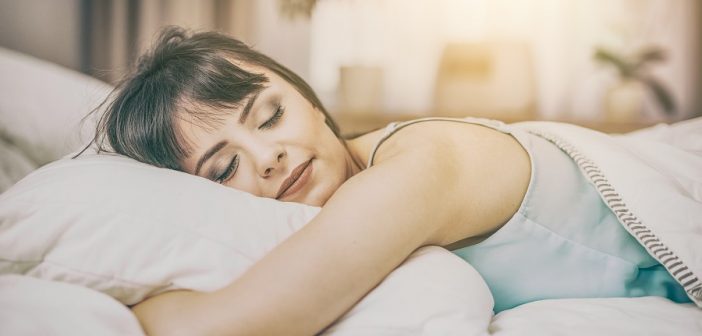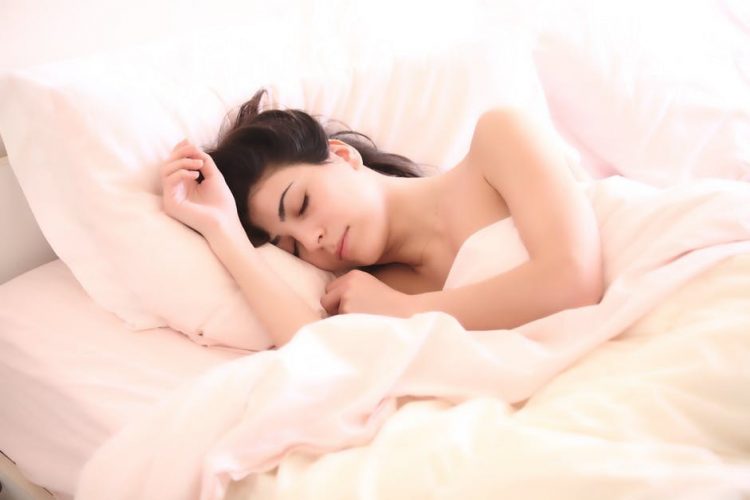Being well-rested goes beyond going to bed at the same time each night. If the sleep that you experience isn’t fulfilling, you’ll find yourself waking up just as tired as you were when you went to sleep. If this is the case for you, it’s time to look into what’s holding you back from getting the sleep you deserve.
Image Source: https://images.pexels.com/photos/371109/pexels-photo-371109.jpeg
Getting a Good Night’s Rest
There are several factors that affect your quality of sleep. From the ambience of your bedroom to the thoughts racing through your head, all of these intrusive things can keep you awake at night. Keep reading for six tips to help you sleep more restfully.
1. Get Back into Your Cycle
The body has a natural sleep cycle known as the circadian rhythm. Following this sleep-wake cycle is essential if you hope to feel energized and refreshed.
To get back on track with your natural cycle, you need to make an effort to go to sleep and wake up at the same time each day. This consistency is key to setting your internal clock, which will drastically improve your quality of sleep.
When you do get enough sleep, you’ll be able to wake up on your own without an alarm.
2. Stop Sleeping In
Many of us partake in the joy of sleeping in when we don’t have to work early. While getting an extra bit of sleep during these days may feel good in the moment, these additional hours only serve to throw off our sleep schedule.
By sleeping longer one day or on the weekend, you’ll throw off your cycle for the rest of the week. This will lead to you feeling excessively tired and not getting the quality of sleep you need.
Still sleepy after waking up at your regular time? Consider napping during the day or getting to bed earlier.
3. Nap Wisely
Don’t go overboard with your napping. Yes, napping is a great way to pay off a sleep debt, but taking exceptionally long naps during the day will make it harder to fall asleep at night.
Try to stick to naps that are 20 minutes or less during the early afternoon.
4. Eliminate the Critters
Got a bed bug problem? While some people learn to live with bed bugs, these pesky critters certainly make for an uncomfortable night in bed.
If you want a better night’s rest, it’s time to reclaim your space. Instead of treating this problem yourself, it’s best to trust professional exterminators. According to Jordan Larson from CustomBedBug.com, DIY bed bug treatments rarely work because bed bugs are extremely resilient and are even resistant to many insecticides.
While homemade bed bug remedies have their place, if you really want a better night’s rest, it’s time to take care of your bed bug problem once and for all. A professional exterminator has the expert tools and knowledge to turn your bedroom into your sanctuary once again.
5. Limit Light Exposure
Light exposure will trigger the “wake” part of your sleep cycle. This is why it is important to keep your room dark if you hope to sleep longer.
If you have a job that doesn’t require you to work at night, it’s a good idea to start controlling your body’s exposure to light to help shape your sleep-wake cycle.
In the morning, expose yourself to sunlight. This bright light will help you wake up faster. As the day goes on, be sure to soak up the sun outside either by going on a walk, a run, or spending time by the window. When getting ready for bed, stay away from bright screens. If you can, put all electronics away within a few hours of bedtime.
As you get ready to sleep, make sure no light is leaking into your room. If you can sleep with an eye mask on, this will be helpful–especially if you live with roommates that tend to be up late.
6. Control Your Caffeine
Image Source: https://images.pexels.com/photos/1251175/pexels-photo-1251175.jpeg
Caffeine is loved by many for its unique ability to keep us awake. While this is helpful during the day, it can pose a serious problem when you’re trying to sleep at night.
If you find that you can’t stop your thoughts from racing when you’re trying to go to bed, it might be time to cut back on caffeine. As caffeine can keep people awake for up to 12 hours after the first sip, it is very important to carefully control your caffeine intake. The same goes for alcohol and any other stimulants that will negatively affect your sleep.
You have control over the quality and amount of sleep you get. Make sure you are well rested by applying these six things to your life.






